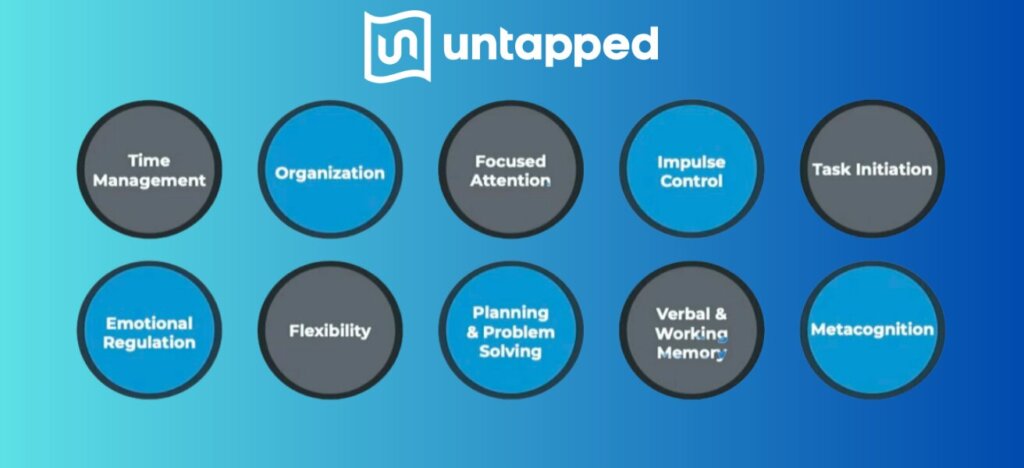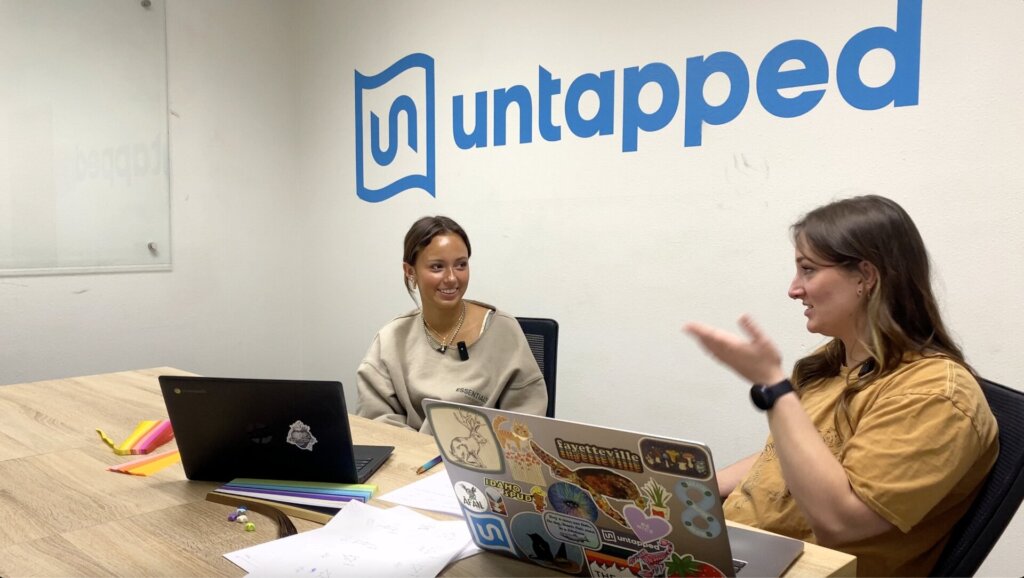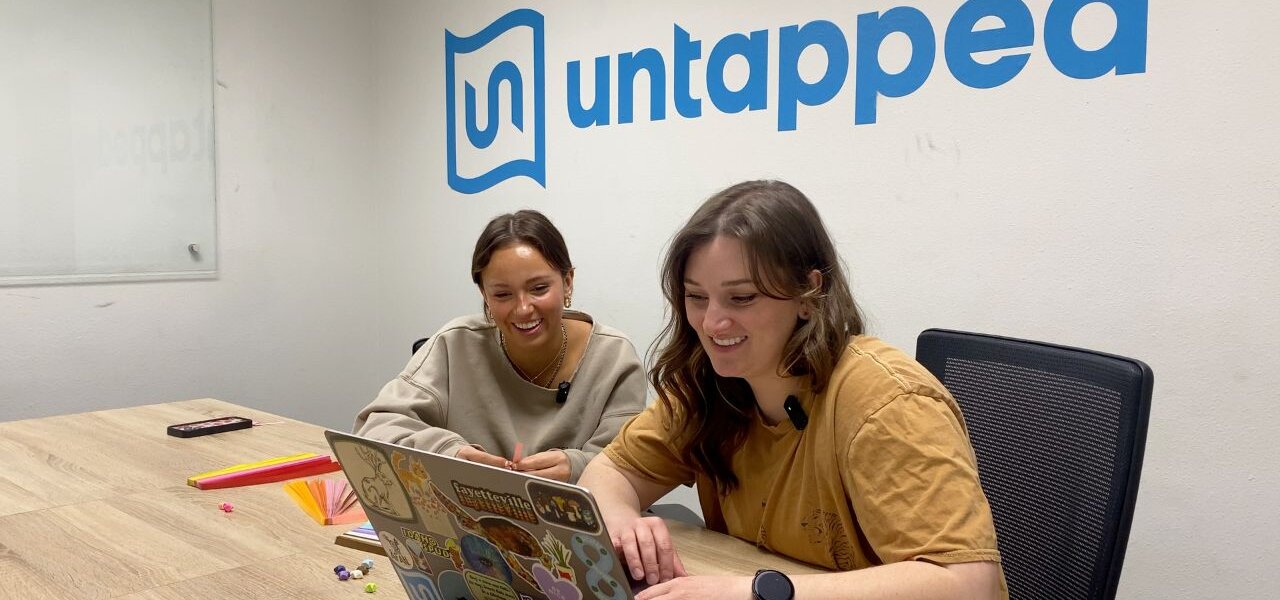Behind Every Struggle Is a Skill Waiting to Be Built
When I first met Jordan, she looked defeated. Her mom told me, “She’s bright, but she just can’t get out of her own way.”
That line stuck with me because it’s something I hear often from parents who reach out to Untapped Learning. Their kids are creative, capable, and intelligent. They’re not unmotivated—they’re stuck.
Jordan reminded me of the students I’ve worked with who hit the same wall over and over again. They sit down to work, get overwhelmed before starting, and spiral into frustration or avoidance. They want to do better but don’t know how.
What I’ve compiled here is the list of executive functioning skills that successful students rely on every day. Once she started developing those skills, everything began to shift.

Time Management: Making the Invisible Visible
Before coaching, Jordan would tell me, “I swear I worked all night,” but couldn’t explain where the hours went. To her, time wasn’t linear—it was invisible.
We started by visualizing time. Jordan used a whiteboard calendar to map out her week and color-coded blocks for assignments. She also set simple alarms that reminded her when to start or wrap up tasks.
For the first time, she could see time moving, and that small awareness changed her relationship with deadlines completely.
Organization: Creating Space for Clarity
Jordan’s desk, backpack, and Google Drive all looked the same—cluttered and chaotic.
Instead of tackling it all at once, we focused on systems. Each Sunday, she did a “reset” to clear out papers, rename digital files, and update her calendar. We labeled folders by class and even made one catch-all folder titled “To Sort Later” so she had an easy starting point when things got messy again.
When her environment calmed down, so did she.
Focused Attention: Working With, Not Against, Her Brain
Jordan’s focus fluctuated like a light switch—either hyperfocused or completely disconnected.
We shifted from forcing attention to training it. She started using short, timed work sessions paired with quick movement breaks. She also kept her most distracting apps out of reach during homework.
Over time, she noticed she could focus longer without forcing it. The difference was structure, not discipline.
Impulse Control: Slowing the Reaction Loop
Like many students, Jordan struggled with impulse control. If something frustrated her, she’d close her laptop and walk away. If a group chat pinged, her attention disappeared.
We introduced a simple “pause and plan” system. Before reacting, she’d take a moment to check in with herself: “Is this helping me or hurting me right now?”
That small pause gave her control over her reactions. It wasn’t about suppressing emotion—it was about creating space to choose her next move.
Task Initiation: Breaking Through the Starting Wall
Starting is often the hardest part for students with EF challenges. For Jordan, assignments felt enormous before she even began.
We broke every task into micro-steps. Instead of “write the essay,” her first goal was “open the document.” From there, she’d write one sentence—just one.
Once the process started, momentum built naturally. The first step became the only one that mattered.
Emotional Regulation: Finding Calm in the Chaos
When Jordan got overwhelmed, everything stopped. Late work, arguments, guilt—it became a cycle.
We began reframing emotional regulation as recovery, not control. After stressful moments, we’d debrief: “What triggered that? What helped you bounce back?”
She learned that reflection and small resets—listening to music, journaling, or stepping outside—kept her from spiraling. Emotional growth became her foundation for academic progress.

Mental Flexibility: Learning to Adapt Instead of Freeze
Unexpected changes used to derail Jordan. A last-minute assignment or group project could send her into panic mode.
We worked on flexibility through perspective-taking. I’d ask, “What’s another way we can handle this?” or “What would future you want you to do right now?”
Gradually, she stopped seeing change as failure. She began adjusting instead of shutting down.
Planning and Problem Solving: Turning Ideas Into Action
Jordan’s approach to big projects was all or nothing. She’d either procrastinate until the last second or overplan every detail.
We introduced backward planning. She set milestones, broke them into smaller checkpoints, and used visual reminders to track progress. Seeing each box checked off built confidence and consistency.
Planning stopped being an obstacle and became a skill she could rely on.
Verbal and Working Memory: Keeping Track Without Overload
Jordan often said, “I forgot what you said right after you said it.” It wasn’t attitude—it was working memory overload.
We externalized her thinking. Instructions went on sticky notes, checklists, or short voice memos. She repeated directions out loud before starting tasks.
Over time, her “forgetfulness” turned into independence. She learned how to support her memory instead of fighting against it.
Metacognition: Turning Reflection Into Progress
By the end of our time together, Jordan could name what worked for her—and what didn’t.
She ended each week by writing down one success and one area to improve. Those reflections built her metacognition, which is the ability to think about your own thinking.
That awareness turned her from reactive to strategic. She no longer waited for motivation. She created it.
Where Jordan Is Now

When we finished coaching, Jordan was still learning, still human, still imperfect. But she had something she didn’t have before—control.
She used to see school as something that happened to her. Now, it’s something she navigates. Her mom said, “She’s not just surviving school anymore. She’s owning it.”
That’s what developing executive functioning skills does. It gives students ownership of their success and confidence in their process.
How We Build These Skills at Untapped Learning
At Untapped, we help students grow these abilities through our REP Framework: Relationships, EF Skill-Building, and Personalization.
We start by building a genuine connection. Then, we teach the list of executive functioning skills through practice, reflection, and accountability. Every student’s plan is personalized to their strengths, schedule, and mindset.
Our goal isn’t just to raise grades—it’s to help students understand how they learn, think, and adapt.
Your Student Can Learn These Skills Too
If your child’s story sounds familiar, you’re not alone. Executive function challenges are common, but they are not permanent.
Download the Executive Functioning Scorecard Worksheet. It helps you identify where your student thrives and where they could use support. It’s a simple way to start making progress today.
If you’d like to talk with our team about how coaching can help your student build lasting systems for success, reach out to us at Untapped Learning.
When students understand their brains and build systems that work for them, everything changes—not overnight, but for good.





